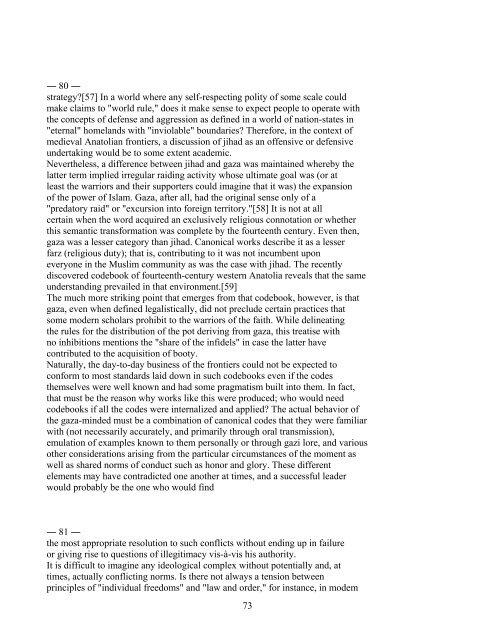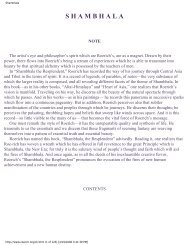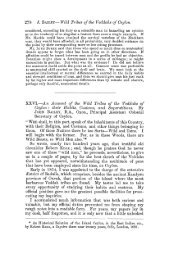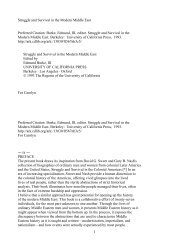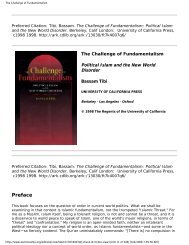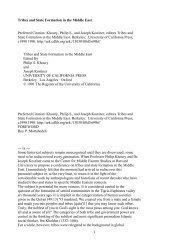Between Two Worlds Kafadar.pdf
Between Two Worlds Kafadar.pdf
Between Two Worlds Kafadar.pdf
You also want an ePaper? Increase the reach of your titles
YUMPU automatically turns print PDFs into web optimized ePapers that Google loves.
― 80 ―<br />
strategy?[57] In a world where any self-respecting polity of some scale could<br />
make claims to "world rule," does it make sense to expect people to operate with<br />
the concepts of defense and aggression as defined in a world of nation-states in<br />
"eternal" homelands with "inviolable" boundaries? Therefore, in the context of<br />
medieval Anatolian frontiers, a discussion of jihad as an offensive or defensive<br />
undertaking would be to some extent academic.<br />
Nevertheless, a difference between jihad and gaza was maintained whereby the<br />
latter term implied irregular raiding activity whose ultimate goal was (or at<br />
least the warriors and their supporters could imagine that it was) the expansion<br />
of the power of Islam. Gaza, after all, had the original sense only of a<br />
"predatory raid" or "excursion into foreign territory."[58] It is not at all<br />
certain when the word acquired an exclusively religious connotation or whether<br />
this semantic transformation was complete by the fourteenth century. Even then,<br />
gaza was a lesser category than jihad. Canonical works describe it as a lesser<br />
farz (religious duty); that is, contributing to it was not incumbent upon<br />
everyone in the Muslim community as was the case with jihad. The recently<br />
discovered codebook of fourteenth-century western Anatolia reveals that the same<br />
understanding prevailed in that environment.[59]<br />
The much more striking point that emerges from that codebook, however, is that<br />
gaza, even when defined legalistically, did not preclude certain practices that<br />
some modern scholars prohibit to the warriors of the faith. While delineating<br />
the rules for the distribution of the pot deriving from gaza, this treatise with<br />
no inhibitions mentions the "share of the infidels" in case the latter have<br />
contributed to the acquisition of booty.<br />
Naturally, the day-to-day business of the frontiers could not be expected to<br />
conform to most standards laid down in such codebooks even if the codes<br />
themselves were well known and had some pragmatism built into them. In fact,<br />
that must be the reason why works like this were produced; who would need<br />
codebooks if all the codes were internalized and applied? The actual behavior of<br />
the gaza-minded must be a combination of canonical codes that they were familiar<br />
with (not necessarily accurately, and primarily through oral transmission),<br />
emulation of examples known to them personally or through gazi lore, and various<br />
other considerations arising from the particular circumstances of the moment as<br />
well as shared norms of conduct such as honor and glory. These different<br />
elements may have contradicted one another at times, and a successful leader<br />
would probably be the one who would find<br />
― 81 ―<br />
the most appropriate resolution to such conflicts without ending up in failure<br />
or giving rise to questions of illegitimacy vis-à-vis his authority.<br />
It is difficult to imagine any ideological complex without potentially and, at<br />
times, actually conflicting norms. Is there not always a tension between<br />
principles of "individual freedoms" and "law and order," for instance, in modem<br />
73


